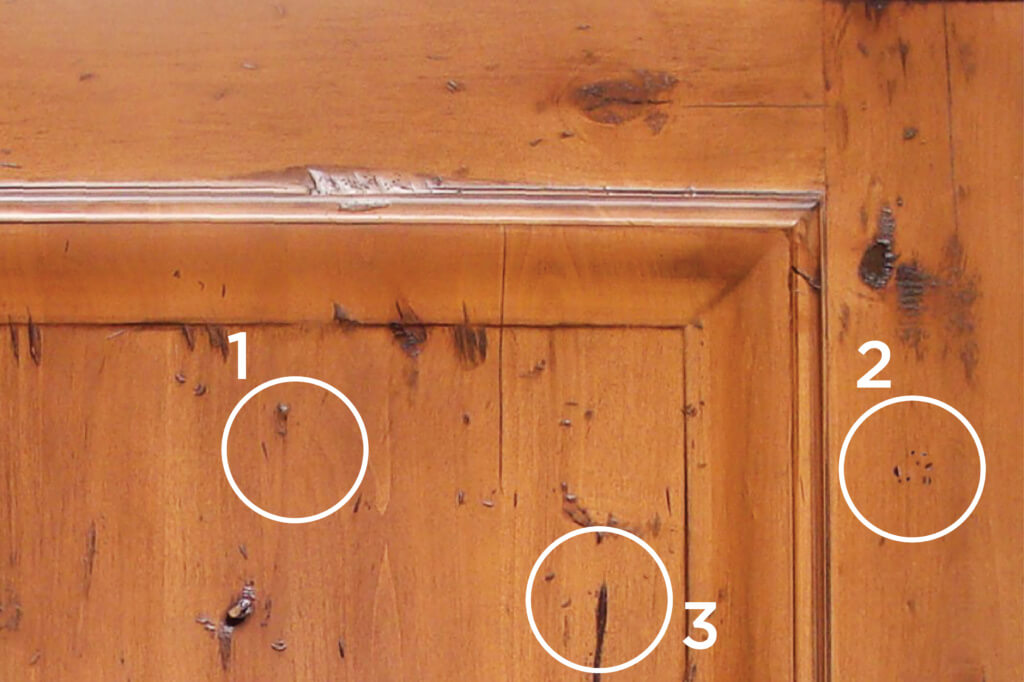Distressed Wood
Sun Mountain can “distress” new wood to give it a worn, antique look and feel. Skilled artisans do this by hand, using a variety of Old World tools. Distressing is particularly dramatic on rustic (knotty) wood species, and pre-finished glaze options beautifully highlight the warmth and character of the antiqued wood.
Sun Mountain’s standard distress options are shown here.
Doors
Images illustrate the attributes for the level of distressing, not density and location, which will vary on each door.

LIGHT DISTRESS
Light distress is characterized by:
- Scratches
- Lightly broken edges
- Surface dents and dings

MEDIUM DISTRESS
Medium distress includes the features of Light distress, with:
- Heavily broken edges on panels and sticking
- Worm holes
- Long cracks
- Planer chatter around knots

ANTIQUE DISTRESS (Plank Doors Only)
Antique distress applies to plank (“V-groove”) doors only. Antique distress is equal to Medium distress, with:
1. Tear-out and broken edges on V-grooves

HEAVY DISTRESS
Heavy distress includes the features of Medium distress, with:
- Heavily planed and sanded surface finish
- Additional worm holes
- Random gouges

WIRE BRUSHED DISTRESS
Wire brushing is a distressing technique that creates a unique weathered effect. A wire brush machine is used to remove soft summerwood fibers of the wood, accentuating harder grains. The result is a gently worn texture with fine brush markings along the grain. The stiff wire brushes work best on softwoods such as Pine or Cedar, but can be used on some hardwoods such as Oak. Alder is soft enough to be wire brushed, but the result tends to be a “fuzzy” texture rather than a clean brushed look. Very dense hardwoods such as Hickory or Mahogany cannot be wire brushed.
Because it is completed before the door is assembled, wire brushing may create up to a 1/16″ difference in the face plane of the door, between the stiles and rails. The wire brush technique is only applied to flat surfaces—not to sticking, panel profiles, or applied mouldings. Thus, wire brushing may not be an appropriate choice for very ornate doors, or those with prominent profiles.
The characteristics of Light and Wire Brushed distress for doors can also be applied to door jambs. Light and Wire Brushed distress can also be applied to wood mouldings. Light, Medium, Heavy, and Wire Brushed distress can also be applied to wood beams.
